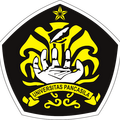Pengaruh Planned Happenstance terhadap Career Decision Self-Efficacy dengan Career Exploration Behavior sebagai Mediator
Abstract views: 5231 | PDF (Bahasa Indonesia) downloads: 533
Abstract
The 4.0 industrial revolution that is taking place in Indonesia has created a changing situation, which has left SMK students confused in choosing careers after graduating from school. This problem can be overcome if students have a career decision self-efficacy (CDSE). This study aims to determine the effect of planned happenstance skills on CDSE mediated by career exploration behavior. This research was conducted on 789 vocational students (399 male students, 390 female students) in the Depok and Jakarta areas. The results showed that the career decision self-efficacy of vocational students was influenced by planned happenstance skills and mediated by career exploration behavior, even with a low level of correlation. Based on the results of this study, career counselors can help vocational students improve career decision self-efficacy by teaching planned happenstance skills.
References
Ahn, S., Jung, S. H., Jang, S. H., Du, X., Lee, B. H., Rhee, E., Gysbers, N., & Lee, S. M. (2015). Planned happenstance skills and occupational identity status in high school students. The Career Development Quarterly, 63(1), 31-43. https://doi.org/10.1002/j.2161-0045.2015.00093.x
Archer, S. & Yates, J. (2017). Understanding potential career changers’ experience of career confidence following a positive psychology based coaching programme. Coaching: An International Journal of Theory, Research and Practice, 10(2), 157-175. DOI: 10.1080/17521882.2017.1292535
Aurachman, R. (2018). Perancangan influence diagram perhitungan dampak dari revolusi industri 4.0 terhadap pengangguran kerja. Jurnal Teknologi dan Manajemen Industri, 4(2), 7-12. DOI: 10.36040/jtmi.v4i2.237
Badan Pusat Statisktik. (2018). Agustus 2018: Tingkat Pengangguran Terbuka (TPT) sebesar 5,34 persen. Diambil dari https://www.bps.go.id/pressrelease/2018/11/05/1485/agustus-2018--tingkat-pengangguran-terbuka--tpt--sebesar-5-34-persen.html
Betz, N. E., Hammond, M. S., & Multon, K. D. (2005). Reliability and validity of five-level response continua for the career decision self-efficacy scale. Journal of Career Assessment, 13(2), 131–149. DOI: 10.1177/1069072704273123
Betz, N. E., Klein, K. L., & Taylor, K. M. (1996). Evaluation of a short form of the career decision-making self-efficacy scale. Journal of Career Assessment, 4(1),47–57. https://doi.org/10.1177/106907279600400103
Choi, B. Y., Park, H., Yang, E., Lee, S. K., Lee, Y., & Lee, S. M. (2012). Understanding career decision self-efficacy: a meta-analytic approach. Journal of Career Development, 39(5), 443–460. https://doi.org/10.1177/0894845311398042
Falco, L. D. & Summers, J. J. (2019). Social persuasions in math and their prediction of stem courses self-efficacy in middle school. The Journal of Experimental Education, 1-18. DOI: 10.1080/00220973.2019.1681350
Gravetter, F. J. & Forzano, L. B. (2009). Research methods for the behavioral sciences (3rd ed.). Belmont, USA: Wadsworth, Cengage Learning.
Guan, Y., Wang, F., Liu, H., Ji, Y., Jia, X., Fang, Z., Li, Y., Hua, H., & Li, C. (2015). Career-specific parental behaviors, career exploration and career adaptability: A three-wave investigation among Chinese undergraduates. Journal of Vocational Behavior, 86, 95–103. https://doi.org/10.1016/j.jvb.2014.10.007
Hagevik, S. (2000). Planned happenstance. Journal of Environmental Health, 62(9), 39.
Hwang, H. D., Jang, S. H., Jung, S. H., & Lee, S. M. (2012). Examining the relationship of career aspiration and job exploration behaviour on the level of planned happenstance skills. The Korea Journal of Youth Counselling, 20(2), 193–210. DOI: 10.3515/kyci.2012.20.2.008
Jiang, Z., Newman, A., Le, H., Presbitero, A., & Zheng, C. (2018). Career exploration: A review and future agenda. Journal of Vocational Behavior, 110(B), 338–356. https://doi.org/10.1016/j.jvb.2018.08.008
Kementerian Pendidikan dan Kebudayaan RI, Direktorat Jenderal Pendidikan Dasar dan Menengah, Direktorat Pembinaan Sekolah Menengah Kejuruan. (2016). Grand Design Pengembangan Teaching Factory dan Technopark di SMK. Diambil dari http://repositori.kemdikbud.go.id/5045/1/DjzUYFjnZL1m58GaC5wH0pK4944YS2JWiOi20Mag.pdf
Kementerian Perindustrian RI. (2018, 20 Maret). Making Indonesia 4.0: Strategi RI Masuki Revolusi Industri Ke-4. Siaran Pers Kementerian Perindustrian RI. Diambil dari https://www.kemenperin.go.id/artikel/18967/Making-Indonesia-4.0:-Strategi-RI-Masuki-Revolusi-Industri-Ke-4
Kim, B., Jang, S. H., Jung, S. H., Lee, B. H., Puig, A., & Lee, S. M. (2014). A moderated mediation model of planned happenstance skills, career engagement, career decision self-efficacy, and career decision certainty. The Career Development Quarterly, 62(1), 56–69. DOI: 10.1002/j.2161-0045.2014.00070.x
Kim, B., Rhee, E., Ha, G., Yang, J., & Lee, S. M. (2016). Tolerance of uncertainty: Links to happenstance, career decision self-efficacy, and career satisfaction. The Career Development Quarterly, 64(2), 140-152. DOI: 10.1002/cdq.12047
Kim, Y. H. & Choi, N. Y. (2019). Career decision self-efficacy of asian american students: The role of curiosity and ethnic identity. The Career Development Quarterly, 67(1), 32-46. https://doi.org/10.1002/cdq.12161
Lam, M. & Santos, A. (2017). The impact of a college career intervention program on career decision self-efficacy, career indecision, and decision-making difficulties. Journal of Career Assessment, 26(3), 425-444. https://doi.org/10.1177/1069072717714539
Manyika, J., Lund, S., Chui, M., Bughin, J., Woetzel, J., Batra, P., Ko, R., & Sanghvi, S. (2017, November 28). Jobs Lost, Jobs Gained: Workforce Transitions in a Time of Automation. McKinsey Global Institute Report. Diambil dari https://www.mckinsey.com/featured-insight/future-of-work/jobs-lost-jobs-gained-what-the-future-of-work-will-mean-for-jobs-skills-and-wages
Mitchell, K. E., Levin, A. S., & Krumboltz, J. D. (1999). Planned happenstance: Constructing unexpected career opportunities. Journal of Counseling and Development : JCD, 77(2), 115-124. http://dx.doi.org/10.1002/j.1556-6676.1999.tb02431.x
Preston, M. & Salim, R. M. A. (2019). Parenting styles effect on career exploration behavior in adolescene: Considering parents and adolescent gender. Humaniora, 10(3), 249-254. https://doi.org/10/21512/humaniora.v10i3.5803
Sofyan, R. & Indianti, W. (2019). Pengaruh thinking style tipe II terhadap efikasi diri keputusan karier yang dimediasi oleh planned happenstance skills pada remaja. Provitae: Jurnal Psikologi Pendidikan, 12(2), 41-60. http://dx.doi.org/10.24912/provitae.v12i2.6258
Santos, A., Wang, W., & Lewis, J. (2018). Emotional intelligence and career decision-making difficulties: The mediating role of career decision self-efficacy. Journal of Vocational Behaviour, 107, 295-309. DOI: 10.1016/j.jvb.2018.05.008
Savickas, M. L., Nota, L., Rossier, J., Dauwalder, J. P., Duarte, M. E., Guichard, J., Soresi, S., Esbroeck, R. V., & van Vianen, A. E. M. (2009). Life designing: A paradigm for career construction in the 21st century. Journal of Vocational Behavior, 75(3), 239-250. DOI: 10.1016/j.jvb.2009.04.004
Sawitri, D. R. (2008). Pengaruh Status Identitas dan Efikasi Diri Keputusan Karir terhadap Keraguan Mengambil Keputusan Karir pada Siswa SMA Kelas 12 (Tesis). Tidak diterbitkan.
Stumpf, S. A., Colarelli, S. M., & Hartman, K. (1983). Development of the career exploration survey (CES). Journal of Vocational Behavior, 22(2), 191-226. DOI: 10.1016/0001-8791(83)90028-3
Zikic, J., & Hall, D. T. (2009). Toward a more complex view of career exploration. The Career Development Quarterly, 58(2), 181-191. DOI: 10.1002/j.2161-0045.2009.tb00055.x









